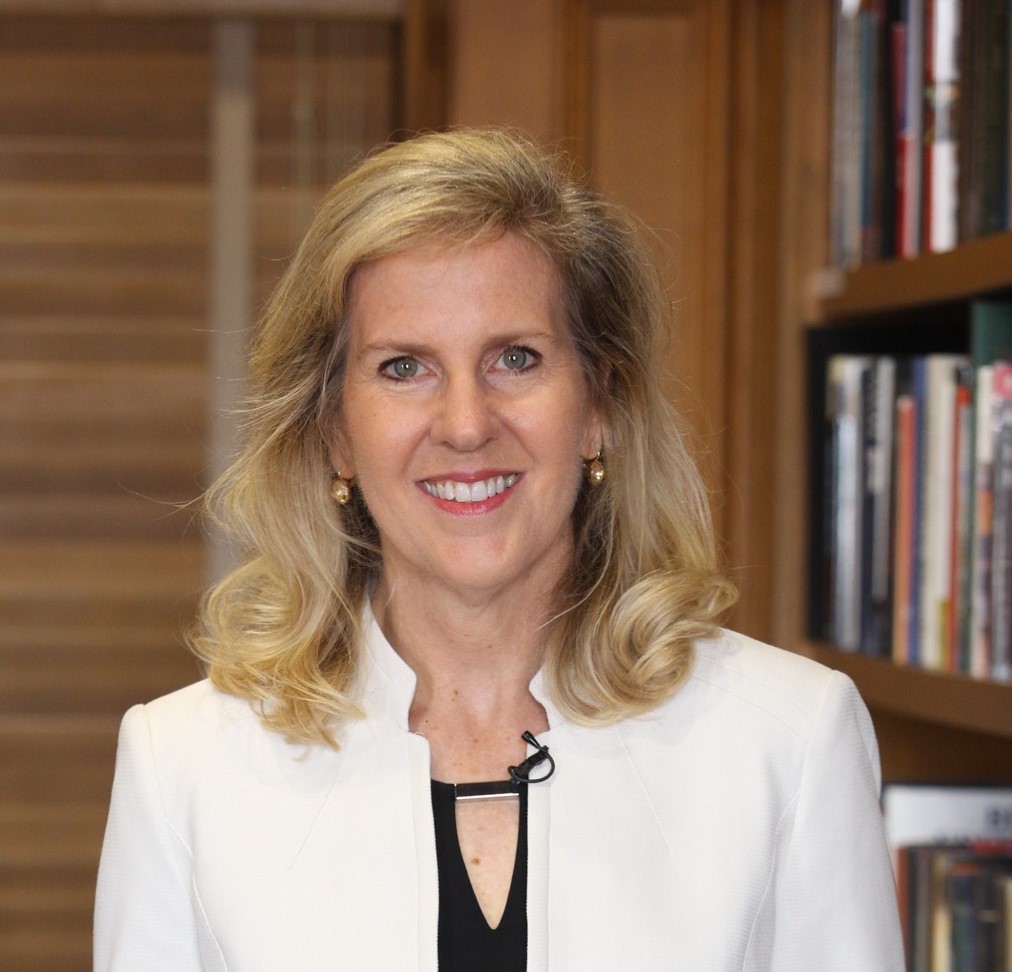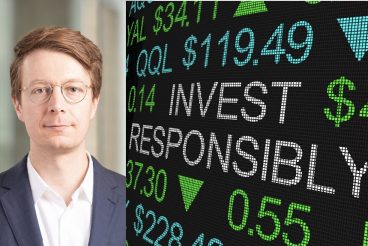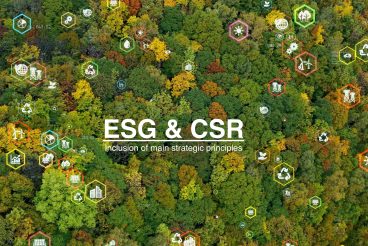Last November’s COP26 conference made significant progress toward engaging private finance in the climate debate, according to Laurie Spengler, a non-executive director of the London-based Impact Investing Institute. But she cautions that only fulfilment of the many pledges announced in Glasgow can demonstrate whether the hoped-for breakthrough has been achieved.

Momentum is building for concrete action to curb global warming by getting the world on track for net zero emissions by 2050 while protecting people and communities from the more wrenching effects of the transition, according to Laurie Spengler, a member of the advisory council of the Impact Investing Institute. Individuals and institutions, she insists, can play a central role in deploying private capital to achieve climate goals even if government commitment weakens.
Spengler, who began her career with international law firm White & Case and is today CEO of impact investing advisory firm Courageous Capital Advisors, has been closely involved in the work of the Impact Taskforce, a global initiative backed by the UK government under its presidency of the G7 group last year, bringing together businesses, investors and other institutions to stimulate the flow of private investment to deliver a sustainable environment.
The task force’s report, Time to Deliver: Mobilising Private Capital at Scale for People and the Planet, calls for mandatory impact accounting, universal reporting standards, more effective catalysation of investment particularly channelled to emerging economies, and a just transition to net zero that leaves no-one behind.
The report followed the COP26 climate conference last November, with its central theme the involvement of private capital in addressing the climate transition, and Spengler says this was palpable in Glasgow. “Veterans of previous COP events say there was a material difference in the level of involvement from the financial and corporate sectors throughout the two weeks,” she says. “I felt personally the awareness and integration of finance into the conversation, recognition that capital flows and financial solutions are necessary parts of the solution.”
Follow the money

But she recognises that given the magnitude and the geographic breadth of the challenge, this is not enough: “It’s terrific that we have quantifiable pledges, commitments and reference points, such as the $8.5 billion pledged to South Africa, but now we have to follow the money. From whom does it flow, to where and on what terms? That will really demonstrate whether we have succeeded in attracting greater participation from private capital that can make a difference in meeting the needs of people and the planet.”
Spengler acknowledges that some of the promises made in Glasgow have yet to be realised. She points, for example, to criticism that some signatories of the Asset Managers Net Zero Initiative have not aligned all – in some cases a relatively small proportion – of their assets with a net zero target, nor indicated when they will.
“That’s what I mean about following the money,” she says. “The first part is reducing the carbon footprint of assets in your current portfolios – what is the time horizon of those transition steps? The other is about where new money is flowing. We have not yet seen sufficient commitment that 50% of new money will go to certain strategies or geographies, especially emerging markets, which is vital to have a chance of addressing the issue across the globe.”
Even if the private sector puts up the capital, critics fear that they want governments and multinational institutions to accept the risks while they reap the rewards. However, Spengler believes that to a certain extent this is inevitable when trying to attract capital to new and unproven markets.
Uncomfortable risk perception
“A lot of investors find emerging market opportunities really exciting and interesting, but the risk perception, both geographic and regarding performance expectations for the underlying investments, is just too big for them to be comfortable with in allocating capital,” she argues. “I believe it is appropriate and legitimate to think of creative ways to mitigate both the real and perceived risk, at least for initial investments, to get more capital flowing. However, we shouldn’t have to do that forever.”
Weaving together existing tools and instruments, such as guarantees from donor organisations, governments or development finance institutions, can act as a lever to unlock more private capital. “In our task force report, we showcase examples of multilateral development banks and development finance institutions playing that intermediation role,” she says, noting that these tools and instruments are being applied a portfolio level, not just for deals or individual assets.
“But we would also say that investors who claim a commitment to people and the planet must roll up their sleeves and work to build the capabilities and expertise to underwrite those deals. Each party has to take at least one step forward at the same time for us to have any chance of mobilising capital at scale, rather than a series of sequential steps. Investors must look inside their own house and see what they can do in modifying the mandates given to their managers, bringing in expertise or adapting their portfolio allocation approaches.”
Spengler says there are lines to be drawn in the currently intense debate as to whether financial institutions should exclude fossil fuel companies and other major carbon emitters from their portfolios, or engage and guide them toward a sustainable future.
Complicated ownership issue
She says discussions must be robust and disclosures transparent. “There is a big difference between financing new drilling and justifying it through the prism of growth, and maintaining a working capital line for a business that has actually put in place a transition trajectory, or financing R&D investment in new, more sustainable opportunities. Certainly some banks are doing both, financing fresh green activities while continuing to fund new production of fossil fuels, and this needs to be scrutinised and called out.”
But it’s not an ‘on-and-off’ switch. She points to the announcement during COP26 by the Asian Development Bank that it is raising a fund to buy coal assets and decommission them: “This is exciting as a tool to move beyond the idea that this kind of activity is dirty, bad, part of the old world.
“We all want to be investing in green technology and businesses, but we have to confront the reality that the transition is complicated. Taking things out of production needs to be done in a timely and responsible way, but at least [the bank’s initiative] is prompting new discussions that I think should be encouraged.”
Also, in the sale of investments in fossil fuel companies or heavily emitting industries, the buyer is liable to be a private entity less subject to public reputational pressure and less certain to be committed to engagement.
Understanding transition realities are particularly important in the context of emerging countries, she says, many of which have contributed the least to global warming but are among the most vulnerable to the effects of climate change. In Spengler’s view, supporting economic development must remain a priority even if that includes a near-term rise in emissions. She argues that public and private investors need to calibrate their investment decisions to support transition pathways that reflect the needs of emerging markets.

Defining a just transition
Says Spengler: “That’s why I find the Asian Development Bank example a good one. If it just announced it would no longer finance coal-fired power plants, the next buyer would be immune to any kind of public pressure. So the bank instead says it will be that buyer – the responsible investor with responsibility for reaching the decommissioning status. It’s an argument for keeping such activities in the public domain and the public eye.”
The task force report explored the importance of a “just transition”. For example, decommission coal-fired power stations or close coal mines and what happens to their employees, who have far fewer options than financiers?
Spengler has strong feelings on the issue. “At COP26, the idea of what a just transition really means started to take more shape. It’s a term that has been used for years, but often with a lofty, aspirational sense of fairness, or very narrowly about fossil fuel job dislocation.
“In the G7 report, we’ve tried to put substance to the concept and introduced three elements for financing vehicles that claim to be advancing a just transition: that the vehicle is making a net positive environmental and climate action contribution; a positive socio-economic distribution and equity contribution; and evidence that it has engaged with the community. We showcase numerous examples of how a just transition approach can be applied to investment vehicles across a wide range of strategies, from financial inclusion to green infrastructure.
Focus on local impact
“We now know how to ask questions at local levels and ensure that what we are investing in is actually benefiting people’s lives and livelihoods,” she says. “We know there will be some pain from the fossil fuel transition, and I don’t believe all of that is down to governments. In private investment vehicles, too, we can be thoughtful about how to benefit lives and livelihoods in how we invest, not just what we invest in.”
The establishment of the task force reflects the rapid development of the impact investing sector over the past decade, Spengler says. “In addition to the asset managers and investors in the ecosystem, we have a system of national advisory boards under the global steering group for impact investing. There is a real global infrastructure to advance impact investing.”
The UK’s G7 presidency, coupled with the staging of COP26 in Glasgow, offered an opportunity “to examine how impact investing is contributing to positive solutions, how we are actually mobilising capital to fulfil the United Nations’ Sustainable Development Goals – both stocktaking and building new momentum,” she says.
The task force involved two separate workstreams, one focusing on how greater transparency on impact, harmonised disclosure standards and better data for decision-making are essential to catalyse private capital at scale, the other on how deploying capital requires strengthening participation of local communities, particularly in emerging markets, and recognising the inextricable link between climate and social impact strategies.
Maintaining the momentum
But can the momentum be maintained, particularly now the spotlight offered by COP26 has faded? Spengler says: “What confronts all of us is that the Covid-19 pandemic and its implications have not left us. It continues to remind us how interconnected we are. I believe people understand more clearly the linkage between environmental and social vulnerabilities.
“I come to environmental issues through the perspective of social equity and inclusion, livelihood advancement and pathways to prosperity and community vibrancy; much of my work focuses on financial and economic inclusion. We need to keep the twin elements of carbon and community, of climate health and social equity, front and centre in order to keep momentum.”
There’s no time to lose, she maintains. “On the way out of COP26 I was hearing that what happens in the next 12 months will really determine whether we are serious about delivering on the commitments and pledges, and creating the conditions that actually move the money. It’s not between now and 2030. The time horizon is 2022 and 2023. Breaking it down into the next 12 to 18 months is a really powerful tool for all of us working in the financial markets to hold ourselves to account.
“Previously my sense was that people made commitments that seemed very long-dated. But you have to reverse-engineer them to determine the immediate steps we need to take. We have the 2030 commitment, but what does it mean for key performance indicators for the next 12 months?”
Influencing government
A looming threat is the possible loss of political support for climate transition in the US following November’s mid-term elections, which could give greater power to lobbies seeking to delay action, and in turn erode the commitment or sense of urgency in critical countries such as China and Russia. The overturning of global political relationships sparked by Russia’s invasion of Ukraine and the challenges posed by soaring energy prices and incipient shortages have added further complexity.
Says Spengler: “As an American, I do worry about that, and about the whole geopolitical landscape. However, I believe that more and more individuals – citizens, consumers and pensioners – recognise the climate and social imperatives. Political leadership is helpful and powerful, but we don’t have to wait upon government to deliver solutions, we know what we need to do.
“Government can help enhance the investment environment – it can dismantle regulatory barriers, reduce friction in the system and galvanise momentum – but we don’t need it to act in order for private capital to invest in a future that is good for people and for the planet. If we as individuals, not just those inside financial institutions, are active in investment decisions, if we are concerted and co-ordinated in our efforts, we can not only be ourselves accountable for tangible action but act as a force of influence on government.”
— — —
Laurie J. Spengler is an impact investment banker, board member and active contributor to the impact investing industry. Among current board engagements, Laurie serves as a non-executive director of British International Investment (formerly known as CDC) (the UK DFI) and Lendable. Laurie serves as Global Ambassador to the Global Steering Group on Impact Investing and as an Impact Advisor to the EQT Future Fund. She is a member of the Advisory Council of the UK Impact Investing Institute and a Senior Fellow and Advisory Council member of Casei3 at the Fuqua Business School. Laurie is a member of the Council on Foreign Relations.
Laurie is CEO of Courageous Capital Advisors. Previously, Laurie was CEO of Enclude Ltd. and Enclude Capital UK Limited. Prior to building Enclude Capital, Laurie was founder and CEO of Central European Advisory Group and also worked as an attorney with the New York, Brussels and Prague offices of White & Case. Laurie has a JD from Harvard University and an undergraduate degree from Stanford University.





